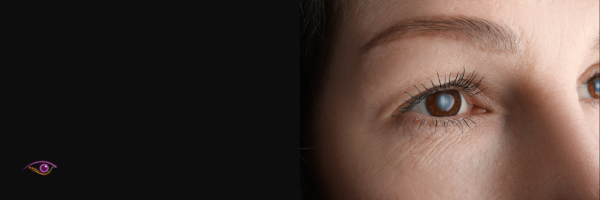5 Common Vision Myths
You’ve probably heard most of these myths about vision, but did you know they were all untrue?
MYTH 1 - Eating carrots will improve your eyesight
FALSE – Carrots contain vitamin A, which is important for eyesight, but a healthy and well-rounded diet will provide you with plenty of vitamin A, with or without carrots! So, while eating carrots IS good for your eyes, it will not change or improve your vision.
MYTH 2 - Looking at screens for a long time will damage your vision
FALSE – Have your eyes ever been sore or tired after a long day looking at screens? Most people would agree this is true, yeah? While staring at a screen for a long period of time can make your eyes feel tired, it won’t cause any permanent damage. When we use devices like phones or laptops, we tend to blink less often, which means your eyes can become dry and feel strained.
To reduce eye strain, try to take regular breaks or consider getting a blue coat on your next pair of glasses.
MYTH 3 - Sitting too close to the TV is bad for your children’s eyesight
FALSE – While sitting so close to the TV screen may seem uncomfortable and unnecessary for adults, it won’t cause any permanent damage to your child’s eyes. If you notice your child sits close to the TV regularly, this could be an indication they may have an undiagnosed vision problem. Book your child in for regular eye examinations to make sure they are seeing the world clearly.
MYTH 4 - Reading in low light will damage your eyes
FALSE - Reading in low light is what humans have done for much of history - before electricity, people would read by dim light or candlelight. Even though most people today are used to reading in much brighter light, it won’t harm your eyes or worsen your vision, however it can cause eye strain. Lack of light can cause our eyes to work harder and they can get tired just like any other muscle. If you notice eye strain or discomfort after reading in low light, it’s probably better to turn another light on.
MYTH 5 - You only need to visit your optometrist when you notice a problem
FALSE - Maybe you think your eyesight is fine, or you think you don’t need to worry about eye problems until you reach your 40s or 50s—this is not true. It is important to visit your eye doctor regularly to monitor any prescription changes, but remember, your check up is about much more than your glasses or contact lens prescription. Your Optometrist will also check the health of your eyes, looking for signs of diseases like glaucoma, macula degeneration, and other conditions which we can diagnose long before you can be aware of any symptoms. It is important to have regular visits to your optometrists – usually every 12 months to 2 years, depending on what your optometrist recommends.
Don't believe the myths, we're here to tell you the truth! We want to make sure you have health vision now and into the future, call us today to book your next eye examination.
Sam Fox
Optical Dispenser



